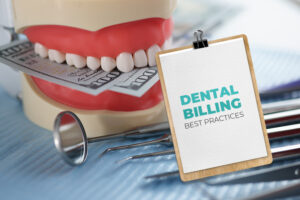
Medicare Advantage Plans in dental billing, also known as Medicare Part C, are health insurance plans offered by private companies that contract with Medicare to provide beneficiaries with all the benefits of Medicare Part A and Part B, and often additional benefits as well. While Medicare Advantage Plans can include coverage for a range of medical services, they typically do not cover routine dental care. However, some Medicare Advantage Plans might offer limited dental benefits as part of their extra coverage options. It’s important to note that these benefits can vary widely depending on the specific plan and the insurance company offering it.
When it comes to dental billing under Medicare Advantage Plans, here are some key points to consider:
Covered Dental Services: If a Medicare Advantage Plan does offer dental coverage, it’s usually limited to preventive services, basic procedures, and in some cases, emergency dental care. This might include services like dental exams, cleanings, X-rays, fillings, and extractions.
Network Restrictions: Medicare Advantage Plans typically have networks of providers that beneficiaries must use to receive coverage. If you’re a dental provider looking to bill for services, you would need to be a part of the plan’s network or have a contract with the insurance company to provide services.
Billing Procedures: Dental providers would need to follow the billing procedures outlined by the specific Medicare Advantage Plan they are dealing with. This might involve submitting claims for covered services, using the appropriate billing codes (such as Current Dental Terminology – CDT codes), and providing any necessary documentation.
Prior Authorization: Some dental services might require prior authorization from the Medicare Advantage Plan before they are covered. This means that the provider would need to submit details about the proposed treatment plan and receive approval before proceeding.
Cost Sharing: Beneficiaries may still be responsible for certain costs, such as copayments, coinsurance, and deductibles, even for covered dental services. The exact cost-sharing structure will depend on the specific Medicare Advantage Plan.
Enrollment and Plan Information: Beneficiaries who are interested in dental coverage through a Medicare Advantage Plan should carefully review plan documents, including the Summary of Benefits, Evidence of Coverage, and any other materials provided by the plan. This will help them understand what dental services are covered, what the costs will be, and how the billing process works.
It’s important for both dental providers and Medicare Advantage Plan beneficiaries to communicate directly with the insurance company offering the plan to get accurate and up-to-date information about dental coverage, billing procedures, and any changes to the plan’s benefits. Additionally, regulations and offerings can change over time, so staying informed about the latest developments is crucial.
